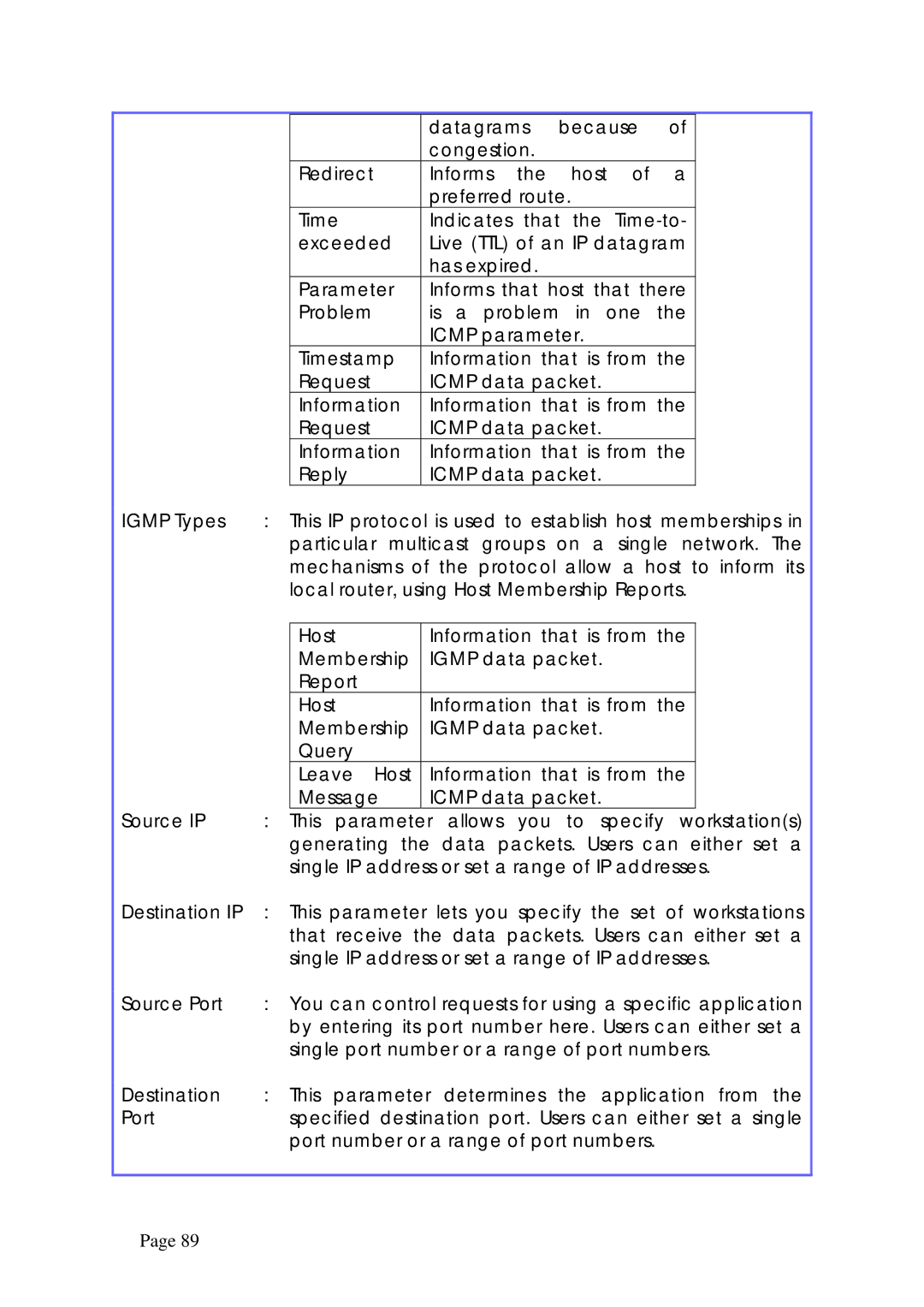
| datagrams because of |
| congestion. |
Redirect | Informs the host of a |
| preferred route. |
Time | Indicates that the |
exceeded | Live (TTL) of an IP datagram |
| has expired. |
Parameter | Informs that host that there |
Problem | is a problem in one the |
| ICMP parameter. |
Timestamp | Information that is from the |
Request | ICMP data packet. |
Information | Information that is from the |
Request | ICMP data packet. |
Information | Information that is from the |
Reply | ICMP data packet. |
IGMP Types | : This IP protocol is used to establish host memberships in | |||
|
| particular multicast groups on a single network. The | ||
|
| mechanisms of the protocol allow a host to inform its | ||
|
| local router, using Host Membership Reports. | ||
|
|
|
|
|
|
| Host | Information that is from the | |
|
| Membership | IGMP data packet. |
|
|
| Report |
|
|
|
| Host | Information that is from the |
|
|
| Membership | IGMP data packet. |
|
|
| Query |
|
|
|
| Leave Host | Information that is from the |
|
Source IP | : | Message | ICMP data packet. | workstation(s) |
This parameter | allows you to specify | |||
|
| generating the data packets. Users can either set a | ||
|
| single IP address or set a range of IP addresses. | ||
Destination IP : This parameter lets you specify the set of workstations that receive the data packets. Users can either set a single IP address or set a range of IP addresses.
Source Port : You can control requests for using a specific application by entering its port number here. Users can either set a single port number or a range of port numbers.
Destination : This parameter determines the application from the
Portspecified destination port. Users can either set a single port number or a range of port numbers.
Page 89
